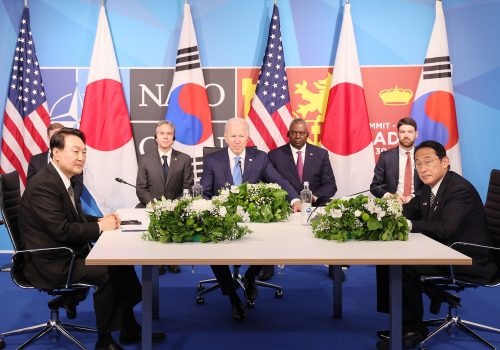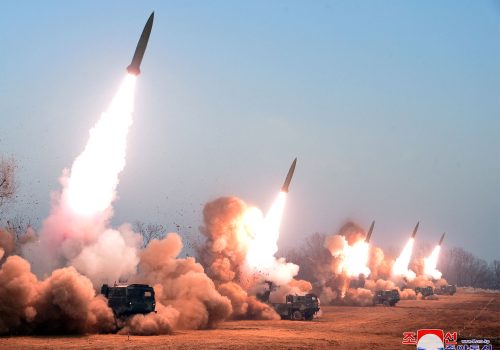A next-generation agenda: Bridging Indo-Pacific and European perspectives on security
Executive summary
As the global security landscape continues to evolve, increased coordination among likeminded allies is key to defending the rules-based international system—and this holds true beyond the region in which a country lies. The United States and South Korea have long championed cooperation when it comes to deterring authoritarian threats and reinforcing a free and open Indo-Pacific, and European North Atlantic Treaty Organization (NATO) countries seem to have come to the same conclusion as they consider their deepening stakes in the Indo-Pacific.
Historically, NATO and South Korea—and, to a slightly lesser degree, the United States—have focused on the security challenges of a singular adversary, seeing themselves directly threatened primarily by specific authoritarian powers, and largely failing to consider the mutually reinforcing aspects of the threats at large. However, over the past several years, the world has seen a significant shift in the geopolitical environment—the increasing nuclear and non-nuclear threats from North Korea, the growing economic and maritime aggression of China, and the unprecedented, continued war against Ukraine by Russia. The cooperation among these powers has also been growing rapidly. For example, there has been undeniable proof of Russia using North Korean ballistic missiles in its war against Ukraine, with sources suggesting the use of North Korean missiles in Kyiv as recently as August 2024.
There is, therefore, a window of opportunity to accelerate efforts to strengthen ties and translate common risk perceptions and security interests into closer operational and strategic cooperation between likeminded countries in Europe, North America, and the Indo-Pacific. At this point of undoubtedly positive commitments and undeniable momentum in the NATO-South Korea relationship, it is vital to seize the opportunity to develop further understanding and collaboration. Therefore, this publication proposes that the countries should aim to
- institutionalize relationships among NATO, European NATO countries, and South Korea;
- cultivate defense industry collaboration and public-private cooperation;
- expand information sharing and joint exercises;
increase cybersecurity cooperation; - and develop joint approaches to economic security.
Related content

The Indo-Pacific Security Initiative (IPSI) informs and shapes the strategies, plans, and policies of the United States and its allies and partners to address the most important rising security challenges in the Indo-Pacific, including China’s growing threat to the international order and North Korea’s destabilizing nuclear weapons advancements. IPSI produces innovative analysis, conducts tabletop exercises, hosts public and private convenings, and engages with US, allied, and partner governments, militaries, media, other key private and public-sector stakeholders, and publics.
Image: NATO Secretary General Jens Stoltenberg and South Korea's President Yoon Suk Yeol leave after a bilateral meeting during NATO's 75th anniversary summit in Washington, US, July 11, 2024. REUTERS/Yves Herman


